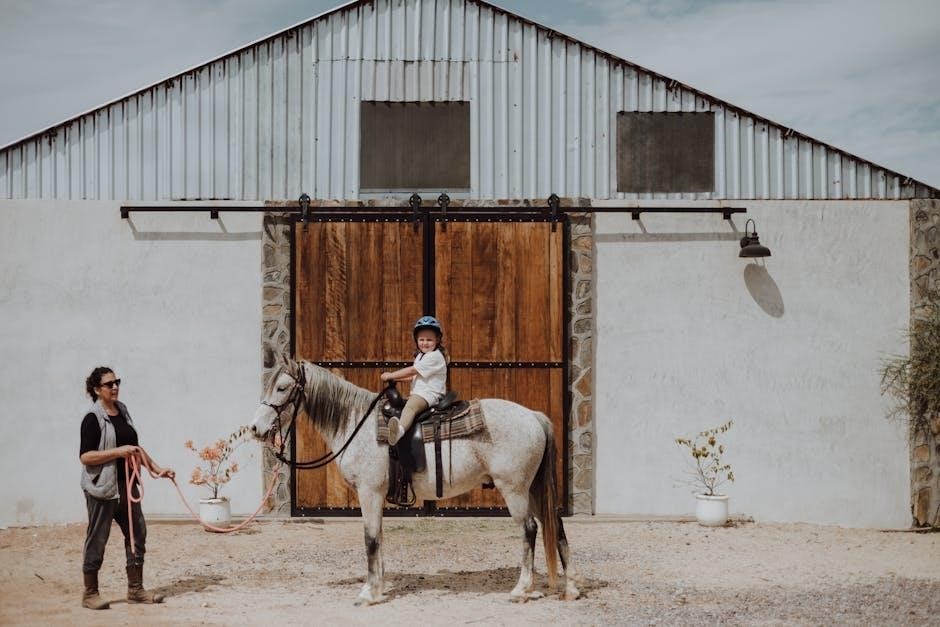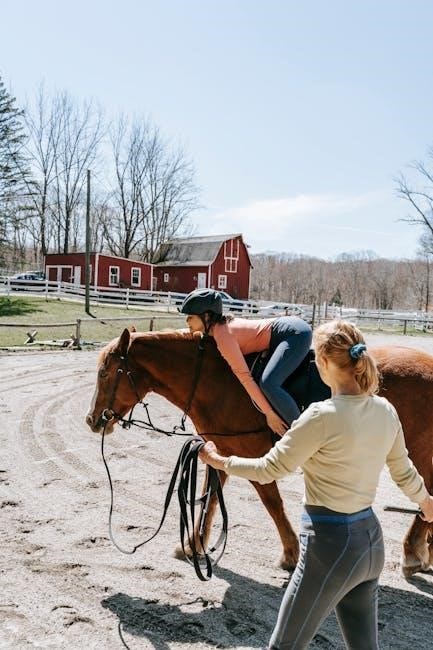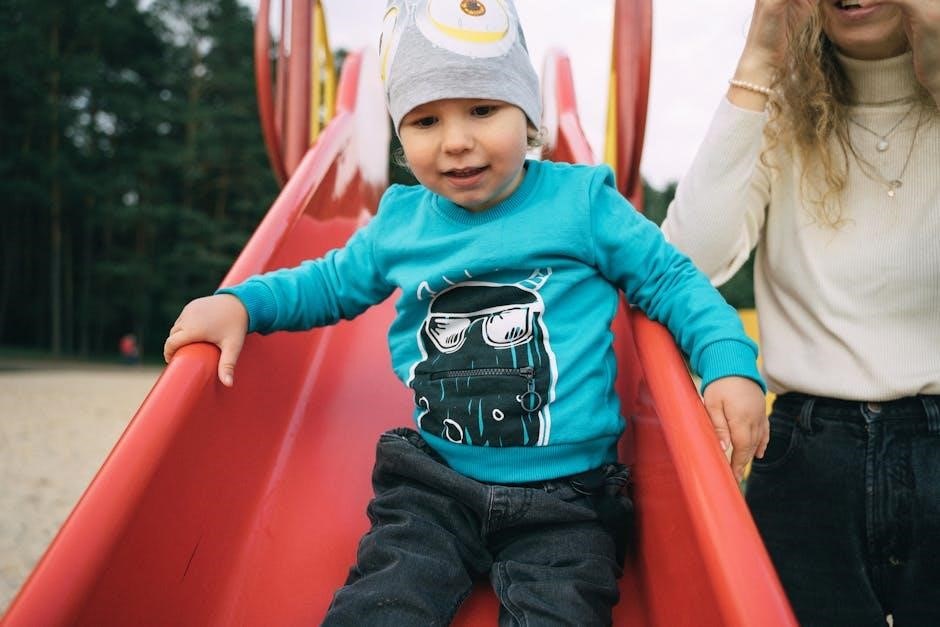
Welcome to your comprehensive guide to “The Ranch,” an American sitcom created by Don Reo and Jim Patterson. Starring Ashton Kutcher and Danny Masterson, the show blends comedy, drama, and Western themes. This guide helps parents navigate its content, considering factors such as language, sexual content, and age appropriateness.
“The Ranch” unfolds in the fictional town of Garrison, Colorado, centering on the Bennett family and their struggles to keep their Iron River Ranch afloat. Colt Bennett, played by Ashton Kutcher, returns home after a failed attempt at a professional football career. He reunites with his older brother Jameson “Rooster” Bennett, portrayed by Danny Masterson, and their parents, Beau and Maggie Bennett, played by Sam Elliott and Debra Winger, respectively.
The show blends traditional sitcom elements with more mature themes, exploring family dynamics, financial hardships, and personal relationships within a rural setting. “The Ranch” balances comedic situations with moments of genuine emotional depth, portraying the complexities of family life and the challenges of small-town living.
Throughout the series, the characters grapple with their past mistakes, navigate evolving relationships, and face the uncertainties of the future. The show aims to resonate with viewers through its realistic portrayal of everyday struggles and the enduring power of family bonds, even amidst disagreements and personal flaws. It’s a story about second chances, finding your place, and the enduring ties that bind families together, for better or worse. The series ran for four seasons on Netflix.
Considering the content of “The Ranch,” it is generally deemed suitable for mature audiences. The show carries a TV-MA rating, indicating that it may not be appropriate for children under the age of 17. This rating is primarily due to the presence of strong language, mature themes, and suggestive content.
While some younger viewers might find the premise of a family sitcom appealing, it’s important to note that “The Ranch” tackles adult issues and often features dialogue and situations that are not intended for children. The humor can be crude at times, and the characters often engage in behaviors that are not exemplary for younger audiences.
Parents should exercise caution and preview episodes before allowing younger teens to watch the show. Discussions about the themes presented, such as family conflict, financial struggles, and personal responsibility, can be valuable learning opportunities for older teens. Ultimately, the decision of whether or not “The Ranch” is appropriate for a particular child depends on their individual maturity level and parental guidance. Consider individual maturity and openness to discussing mature themes before allowing younger viewers access.
One of the most significant concerns for parents considering “The Ranch” is the show’s frequent and strong language. The dialogue often includes profanity, with characters using curse words and vulgar terms throughout many episodes. This prevalence of strong language contributes to the show’s TV-MA rating and is a key factor in determining its suitability for younger viewers.
The use of coarse language is not limited to occasional outbursts; it’s woven into the fabric of the show’s humor and character interactions. While some viewers may find this realistic or entertaining, others may find it offensive or inappropriate, especially for children and teenagers.
Parents should be aware of the extent of the profanity before allowing their children to watch “The Ranch.” If strong language is a concern, this show may not be a good fit for your family. Consider that exposure to such language could normalize it for younger viewers. It’s crucial to weigh the potential impact on your child’s language development and values.

Parents should be aware of the presence of sexual content and occasional nudity in “The Ranch.” While the show is not excessively graphic, it does contain suggestive dialogue, jokes about sex and body parts, and implied sexual situations. Some episodes feature characters discussing or engaging in sexual activity, albeit often in a comedic or understated manner.
Nudity is not a frequent occurrence, but it is present in some episodes. The instances of nudity are generally brief and not explicitly graphic; however, they can still be a concern for parents who wish to shield their children from such content. The show also features discussions about relationships and infidelity, which may be complex topics for younger viewers to grasp;
Given the presence of sexual content and occasional nudity, parents should exercise caution when deciding whether “The Ranch” is appropriate for their children. Consider your child’s maturity level and your family’s values before allowing them to watch the show. It’s important to be prepared to discuss these themes openly and honestly with your children if they do view the show.
A significant aspect of “The Ranch” revolves around the consumption of alcohol. The characters, particularly Beau Bennett, often drink beer and other alcoholic beverages. The show frequently depicts scenes in bars and at home where alcohol is being consumed, and this is often a central element of the plot or character interactions.
While the show doesn’t explicitly promote excessive drinking, it normalizes alcohol use and sometimes portrays its consequences, such as hangovers or impaired judgment. Parents should be aware that the characters’ casual attitude toward alcohol might influence younger viewers. The show also touches upon drug use, although it is less prevalent than alcohol consumption.
Characters may occasionally use or discuss marijuana, and the show may address the topic of drug addiction or recovery in certain storylines. However, drug use is not glorified, and the show often presents the negative consequences associated with it. Given the presence of alcohol and drug use, parents should consider whether “The Ranch” aligns with their family’s values and be prepared to have open discussions with their children about the dangers of substance abuse.

Regarding violence and gore, “The Ranch” generally maintains a moderate stance. The show is not excessively violent, and graphic displays of gore are minimal or nonexistent. However, occasional instances of physical altercations or implied violence may occur within the storyline. These situations typically arise from conflicts between characters or as a result of the rugged, rural setting in which the show is set.
While “The Ranch” is not a show known for its explicit violence, it does not completely shy away from depicting realistic conflicts and their potential consequences. Viewers may witness characters engaging in fistfights, arguments that escalate into physical confrontations, or scenes where weapons are present, although they are not always used.
Parents should be mindful that even though the show is primarily a comedy-drama, it does contain moments of tension and conflict that may be unsettling for younger or more sensitive viewers. Before allowing children to watch “The Ranch,” it is recommended that parents familiarize themselves with the show’s content and make their own assessment of whether the level of violence and gore is appropriate for their child’s age and maturity level.
“The Ranch” explores several positive aspects and themes that can resonate with viewers. At its core, the show emphasizes the importance of family, even amidst dysfunction and conflict. The Bennett family, despite their many flaws, consistently demonstrates a deep-seated love and loyalty for one another. This familial bond provides a source of strength and support as they navigate life’s challenges.
The show also highlights the themes of second chances and redemption. Colt’s return to the ranch after a failed football career offers him an opportunity to reconnect with his family, rediscover his roots, and find a new sense of purpose. Similarly, Beau’s gruff exterior often masks a deep-seated desire to connect with his sons and impart his wisdom.
Furthermore, “The Ranch” touches upon the value of hard work and perseverance. The Bennetts are ranchers who face the daily struggles of running a business in a challenging environment. The show portrays their dedication to their work and their willingness to overcome obstacles through hard work and determination. The show explores themes of community and rural life.
When comparing “The Ranch” to other sitcoms, several key distinctions emerge. Unlike traditional family-friendly sitcoms like “Full House” or “Modern Family,” “The Ranch” delves into more mature and complex themes, often with a darker, more cynical tone. While it shares comedic elements with shows like “Friends” or “The Office,” its focus on rural life and working-class struggles sets it apart.
Compared to sitcoms that rely heavily on slapstick humor or lighthearted storylines, “The Ranch” incorporates more dramatic elements, exploring issues such as divorce, financial hardship, and personal failures. This blend of comedy and drama is similar to shows like “Shameless” or “Orange is the New Black,” although “The Ranch” maintains a more accessible and less overtly controversial approach.
The multi-camera setup and live studio audience give it a traditional sitcom feel, reminiscent of classics like “Roseanne” or “Married… with Children.” However, the show’s willingness to tackle more mature themes and use strong language distinguishes it from these earlier sitcoms. Ultimately, “The Ranch” occupies a unique space in the sitcom landscape, offering a blend of humor, heart, and realism that sets it apart from its contemporaries. It has more mature themes.
Given the mature themes and content present in “The Ranch,” implementing parental controls is highly recommended, especially for younger viewers. Most streaming platforms offer options to restrict access based on age ratings, allowing you to block the show entirely or set viewing limits. Regularly reviewing the show’s content alongside your children is crucial for fostering open communication and addressing any concerns they may have.
Engage in discussions about the characters’ choices and the consequences they face. Use these moments as opportunities to impart your values and beliefs regarding responsible behavior, healthy relationships, and the dangers of substance abuse. Discuss the show’s portrayal of sensitive topics like infidelity, financial struggles, and mental health, encouraging critical thinking and empathy.
Address any instances of strong language, explaining why such language may be inappropriate in certain contexts. Explore the show’s depiction of alcohol and drug use, emphasizing the risks and potential consequences of such behaviors. By actively engaging with the show’s content, you can transform viewing sessions into valuable learning experiences, promoting responsible media consumption and strengthening your family’s bond. Parental guidance is a key thing.


The Ranch: A Parents Guide
Overview of The Ranch
Age Appropriateness
Language Concerns
Sexual Content and Nudity
Drug and Alcohol Use
Violence and Gore
Positive Aspects and Themes
Comparison to Other Sitcoms
Parental Controls and Discussions
Character Development
“The Ranch” presents a spectrum of character development, offering opportunities for discussion and reflection. Colt Bennett, portrayed by Ashton Kutcher, begins as a somewhat immature and directionless individual, returning to his family’s ranch after a failed football career. Throughout the series, viewers witness his gradual growth as he grapples with responsibility, relationships, and the challenges of small-town life. His journey provides a platform to discuss themes of redemption, personal growth, and the importance of family.
Beau Bennett, played by Sam Elliott, embodies a more traditional and stoic figure, representing the older generation’s values and work ethic. His interactions with Colt often highlight generational differences and the struggle to adapt to changing times. Abby Phillips, portrayed by Elisha Cuthbert, adds a layer of complexity, showcasing the challenges women face in male-dominated environments and the pursuit of personal fulfillment.
The characters in “The Ranch” exhibit flaws and make mistakes, reflecting the complexities of real-life relationships. Analyzing their decisions and the consequences that follow can foster critical thinking and empathy in young viewers. Discussing their transformations, both positive and negative, can provide valuable insights into human nature and the power of personal growth.